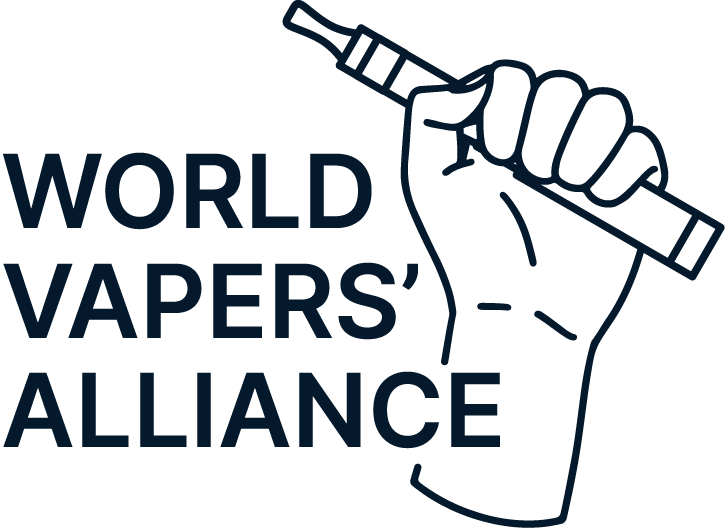Συχνά συναντάμε ανησυχητικούς τίτλους σχετικά με την αύξηση του ατμίσματος από εφήβους. Ωστόσο, η σπασμωδική αντίδραση των υπευθύνων χάραξης πολιτικής τείνει να στρέφεται προς περισσότερους κανονισμούς ή ολοκληρωτικές απαγορεύσεις για προϊόντα που είναι ήδη παράνομα για ανηλίκους. Αυτή η προσέγγιση είναι παράλογη και παραβλέπει εντελώς το κύριο θέμα της: τους εφήβους.
Μια συγκριτική ματιά σε δύο πολιτισμικά παρόμοιες χώρες, την Αυστραλία και το Ηνωμένο Βασίλειο, προσφέρει μια αποκαλυπτική εικόνα. Ενώ η Αυστραλία είναι ένα από τα πιο ένθερμα αντι-ατμιστικά έθνη, το Ηνωμένο Βασίλειο ασπάζεται μια πιο ανοιχτή στάση.
Πρόσφατα δεδομένα υπογραμμίζουν μια εκπληκτική απόκλιση: Αυστραλία έχει υψηλότερο ποσοστό χρήσης ατμίσματος από τους εφήβους από το Ηνωμένο Βασίλειο παρά τους αυστηρούς κανονισμούς της. Γιατί αντιμετωπίζει η Αυστραλία αυτή την ανωμαλία;
Καταρχάς, η ψυχολογία της απαγόρευσης παίζει κρίσιμο ρόλο. Όταν ένα προϊόν ή μια ενέργεια απαγορεύεται, αυτό φυσικά κεντρίζει την περιέργεια, ειδικά μεταξύ των εφήβων σε μια φάση της ζωής που χαρακτηρίζεται από εξέγερση ενάντια στην εξουσία και τους κοινωνικούς κανόνες. Το να καθιστά κανείς το άτμισμα “απαγορευμένο καρπό” ενισχύει ακούσια τη γοητεία του.
Επιπλέον, οι αυστηρές πολιτικές ωθούν την αγορά ατμίσματος στο παρασκήνιο. Οι παράνομες αγορές εγγενώς δεν διαθέτουν κανονισμούς. Δεν υπάρχει επαλήθευση ηλικίας ή έλεγχοι ποιότητας. Το αποτέλεσμα; Οι έφηβοι μπορούν εύκολα να έχουν πρόσβαση σε προϊόντα ατμίσματος και αυτά που αγοράζουν μπορεί να είναι αμφίβολης ποιότητας, θέτοντας ακόμη μεγαλύτερους κινδύνους για την υγεία.
Ένα φιλικό προς τον καταναλωτή ρυθμιστικό πλαίσιο διασφαλίζει ότι ασφαλέστερες εναλλακτικές λύσεις νικοτίνης είναι διαθέσιμες για τους ενήλικες χωρίς αναδυόμενες παράνομες αγορές. Σε χώρες όπως η Αυστραλία, η έλλειψη τέτοιων εναλλακτικών λύσεων μπορεί ακούσια να εκτρέψει τους εφήβους προς πιο επικίνδυνα ή μη ρυθμιζόμενα προϊόντα.
Ωστόσο, η ουσία του ζητήματος δεν έγκειται μόνο στο ίδιο το άτμισμα, αλλά μάλλον στους λόγους που ωθούν τους εφήβους προς αυτό. Ένα επαναλαμβανόμενο θέμα σε πολυάριθμες έρευνες είναι τα διπλά κίνητρα της περιέργειας και των προσωπικών προκλήσεων στη ζωή.
Για τους υπεύθυνους χάραξης πολιτικής, είναι μη ρεαλιστικό να πιστεύουν ότι η περιέργεια μπορεί να εξαλειφθεί με νόμο. Και ενώ οι τακτικές εκφοβισμού μπορεί να φαίνονται σαν ένα αποτελεσματικό αποτρεπτικό μέσο, η υπερβολή των κινδύνων μπορεί να οδηγήσει σε περαιτέρω ίντριγκα, όχι σε αποτροπή.
Το πιο βαθύ, ίσως και πιο απαιτητικό, ζήτημα που πρέπει να αντιμετωπιστεί είναι οι υποκείμενες προκλήσεις που αντιμετωπίζουν οι σημερινοί νέοι. Μια μελέτη του Πανεπιστήμιο του Ιλινόις τόνισε ένα κομβικό σημείο: οι έφηβοι που είναι λιγότερο ικανοποιημένοι με τη ζωή τους τείνουν να στρέφονται προς επικίνδυνες συμπεριφορές, συμπεριλαμβανομένης της χρήσης ουσιών. Το ζήτημα δεν είναι ότι το άτμισμα αποτελεί πύλη προς το κάπνισμα, αλλά ότι οι δυσμενείς συνθήκες στη ζωή ενός εφήβου τον οδηγούν σε διάφορες επικίνδυνες συνήθειες.
Σε αυτό το πλαίσιο, μια γνήσια λύση θα περιελάμβανε ολιστικές προσεγγίσεις για τη βελτίωση της ζωής των νέων. Η καλύτερη υγειονομική περίθαλψη, τα ισχυρά συστήματα κοινωνικής πρόνοιας, οι βελτιωμένες εκπαιδευτικές ευκαιρίες και οι βελτιωμένες οικονομικές συνθήκες μπορούν να λειτουργήσουν ως προστατευτικά εμπόδια κατά των επικίνδυνων συμπεριφορών.
Αλλά εδώ βρίσκεται η δυσάρεστη αλήθεια: Η αναγνώριση αυτού απαιτεί από τους υπεύθυνους χάραξης πολιτικής να παραδεχτούν τις αδυναμίες τους στη δημιουργία περιβάλλοντος που τους φροντίζει για τους νέους. Η αντιμετώπιση των συστημικών ζητημάτων είναι περίπλοκη και απαιτεί γνήσια δέσμευση. Είναι πολύ πιο εύκολο, αν και αναποτελεσματικό, να ρίχνουμε την ευθύνη στις γεύσεις και στο άτμισμα.
Είναι καιρός η συζήτηση να μετατοπιστεί από την απλή ρύθμιση των προϊόντων στην κατανόηση και την αντιμετώπιση των βαθύτερων αιτιών που ωθούν τους εφήβους στο άτμισμα. Μόνο με αυτόν τον τρόπο μπορούμε να ελπίζουμε σε μια πραγματική μείωση του ατμίγματος από τους εφήβους και να διασφαλίσουμε ένα πιο υγιές μέλλον για τους νέους μας.








3 Απαντήσεις